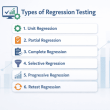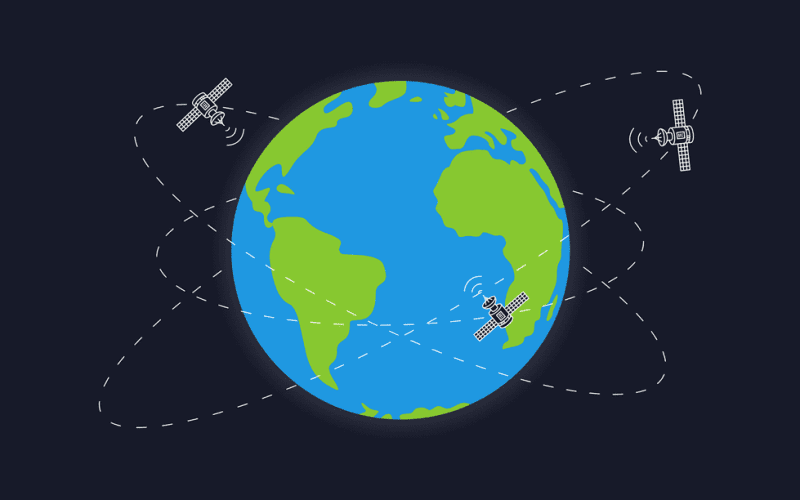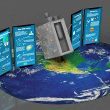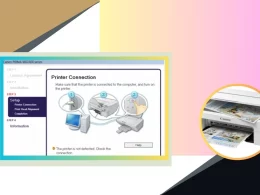In our modern world, GPS (Global Positioning System) stands as an indispensable tool, guiding us through the maze of streets, leading ships across oceans, assisting in aviation, and even enhancing our everyday smartphone experiences.
Origins and Evolution
The genesis of GPS dates back to the late 1950s when the United States Department of Defense commenced efforts to develop a reliable navigation system for military purposes. The need for an accurate and robust positioning system that could function globally became apparent during the Cold War. This initiative aimed to ensure precise positioning, navigation, and timing information for military operations. The first experimental satellite, Transit, launched in 1960, marked the initial steps towards satellite-based navigation. However, it wasn’t until the late 1970s that GPS as we recognize it today began to take shape. The system comprised a constellation of satellites orbiting the Earth, transmitting signals that could be picked up by receivers on the ground.
GPS Works
At the heart of GPS are the satellites orbiting our planet. These satellites continuously emit signals containing information about their location and the precise time the signal was sent. To calculate its position, a GPS receiver collects signals from multiple satellites in its vicinity. By analyzing the time it takes for these signals to reach the receiver, the device can triangulate its position with remarkable accuracy. The accuracy of GPS relies on the synchronization of time among the satellites and the receiver. Any difference in time could lead to inaccuracies in determining the location. Thanks to advancements in technology, GPS has evolved to provide incredibly precise location data, with modern receivers capable of pinpointing locations within a few meters.
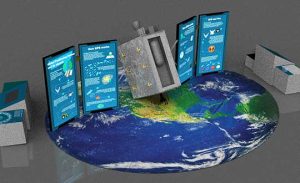
Applications Beyond Navigation
Initially designed for military purposes, the civilian applications of GPS quickly became apparent. Beyond guiding us on our daily commutes, GPS has found its way into various industries, revolutionizing how we interact with technology and the world around us.
Transportation and Logistics: GPS has transformed transportation and logistics, optimizing routes, reducing fuel consumption, and improving overall efficiency. From tracking delivery trucks to managing entire fleets, GPS technology has become integral to the logistics industry.
Aviation and Maritime Navigation: In aviation, GPS has significantly enhanced navigation, guiding aircraft with unparalleled precision. Similarly, maritime navigation has been revolutionized, making sea travel safer and more efficient.
Disaster Relief and Emergency Response: During emergencies and natural disasters, GPS plays a pivotal role in coordinating rescue efforts and delivering aid to affected areas. Accurate location data assists in swift and effective response operations.
Personal Devices and Smartphones: Today, GPS is a staple feature in smartphones and wearable devices, enabling users to navigate unfamiliar locations, discover nearby services, and track fitness activities.
Challenges and Future Developments
While GPS has become an integral part of our lives, it is not without its limitations. Urban canyons, dense forests, and indoor environments often hinder GPS signals, leading to inaccuracies or signal loss. To address these challenges, researchers are exploring augmented reality-based navigation systems and integrating GPS with other technologies like inertial navigation systems and machine learning algorithms for more robust and accurate positioning. The future of GPS also involves the ongoing modernization efforts aimed at improving its performance. Upgrades like the implementation of new satellite signals and better ground infrastructure are underway to enhance accuracy, reliability, and availability.
The Ethical and Privacy Implications
As GPS technology advances, discussions about privacy and ethical considerations have emerged. The continuous tracking and collection of location data raise concerns about individual privacy. Striking a balance between leveraging the benefits of GPS and safeguarding personal information remains a critical consideration in the evolving landscape of technology and privacy.
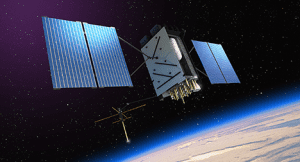
Conclusion
GPS, born from a military necessity, has grown into a ubiquitous technology that shapes the way we navigate and interact with the world. Its applications span across industries, impacting transportation, emergency services, personal devices, and more. As we venture into the future, the evolution of GPS continues, promising enhanced accuracy, reliability, and a multitude of possibilities. As we marvel at the convenience GPS brings to our lives, it’s crucial to acknowledge its roots and the ongoing efforts to refine and expand its capabilities. Embracing innovation while respecting privacy and ethical boundaries will guide us toward a future where GPS remains a beacon of navigation, connectivity, and progress.


